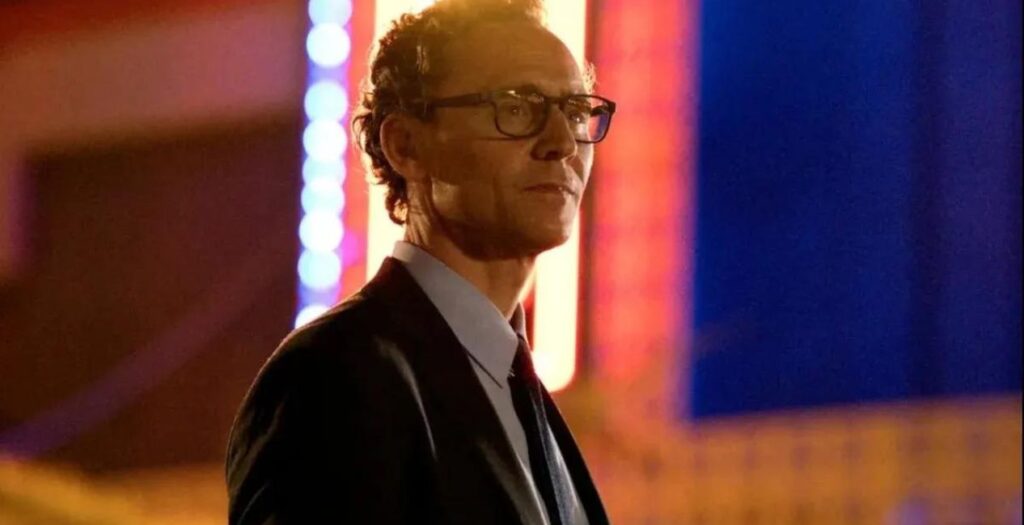Mike Flanagan’s latest Stephen King adaptation, The Life of Chuck, marks both a continuation and departure for the horror director. A blurring of genre lines in The Life of Chuck pivots away from Flanagan’s familiar horror territory, offering him room to play around and experiment. However, the lessons are thematically familiar, delving deep into exploring the human experience. Life is an encapsulation of memories—both good and bad—coming together into a series of final moments as the last of our neurons fire. This is an ode to an ordinary man but also an ode to humanity itself.
A faithful rendition of the novella from King’s “If It Bleeds,” The Life of Chuck is told in non-chronological order. It lures viewers in with an ensuing mystery set against the backdrop of a worldwide apocalypse, a fitting allegory of the act of dying that evokes Erin’s last monologue in Flanagan’s own Midnight Mass. With each act of the film tied together with Walt Whitman’s poem, Song of Myself, it is not chaos or death that truly resides, although death is always lurking. A sense of eternity, at least a variation of it, emerges from the existentialism.
Eternity is captured in those spontaneous, lightning-in-the-bottle moments. A grown-up Charles “Chuck” Kranz (Tom Hiddleston), driven by some long-buried instinct, bursts into dance on a street corner. An ordinary man, a numbers cruncher, evolves into a leading man straight out of the Golden Era of Movie Musicals. A young woman (Annalise Basso), newly broken up, is drawn in to join him. For Chuck, the woman, and this crowd of strangers, this moment personifies the beauty of living. But Flanagan punctuates it with a tone of finality, with Nick Offerman’s narration reminding of Chuck’s ultimate fate.
Death permeates the deeper The Life of Chuck goes, but the seeds of hope are planted for a younger Chuck (Benjamin Pajak). While Hiddleston’s older Chuck has left behind the magic of his youth, Pajak’s Chuck embraces the magic and mystery his grandparents craft for him in the wake of his parents’ tragic deaths. Flanagan always has an eye for emerging talent. Pajak’s casting provides a beautiful spotlight for the young actor’s skills, particularly in the dance sequences with the amusing Samantha Sloyan as an enthusiastic PE teacher.
Mark Hamill’s Zeyde Albie and Mia Sara’s Bubbe Sarah personify the influences of childhood. With a touch of the supernatural, Albie is almost a harbinger of doom for Chuck, of the soul-crushing journey of professional adulthood and practicality. Still, in his way, it is how he shows his care. Bubbe Sarah aids Chuck in his healing journey, lifting him from the tragic despair that death delivers. These two influences shape Chuck, but in the film’s final words uttered by his teenage self (Jacob Tremblay), Chuck readies to push forward into the unknown.

The Life of Chuck starts with the extraordinary before peeling the layers back into something more mundane. There are story clichés like a silly moment in the kitchen or a random moment of dancing in public that evokes classic Hollywood flair. The act of living is riddled with clichés, and it is in these pocketbook moments that Flanagan, through King’s prose, pulls forth a reminder of what makes life special. It is in the tiny moments. Sometimes shared with strangers, other times with those we love, that shape us.
This idea matriculates into the casting process, with The Life of Chuck featuring many familiar faces from Flanagan’s projects. Karen Gillan and Rahul Kohli share scenes of bewildered medical professionals grasping at straws, eerily reminiscent of the medical professionals left to contend with the brutal realities of death in our post-2020 medical climate. Kate Siegel portrays a hippie teacher who imparts Whitman-inspired wisdom to the young Chuck.
New faces to Flanagan’s universe inspire new memories. There’s a delightfully hilarious exchange between David Dastmalchian’s preoccupied parent and the overworked school teacher, Marty Anderson (Chiwetel Ejiofor), over the loss of a life-saving website. Matthew Lillard and Harvey Guillén have brief moments, both equally funny and depressing in good measure. Hiddleston and Pajak embody different states of Chuck, with a charm and likability that never deteriorates with age but lingers long after the credits roll.
The Life of Chuck is Flanagan’s arguably lightest film, delving into a sentimentality underlining some of his work. Exploring human experience is familiar ground for the director, yet his curiosity continues to bring us fans in. Even when the film embraces a naive sweetness that almost feels unbearable, there is a lesson to be learned in those moments.
As Flanagan so eloquently put it before the film started, though I am paraphrasing here, a moment in a room of strangers is likely the first and last time those strangers will meet. Yet, the impact can last a lifetime. The effect of one man, just an ordinary accountant on paper, can ripple through galaxies, tearing them asunder with one final breath. That is The Life of Chuck. A life lived full of ups, downs, and everything in between. It reminds us all that even in our own state of being, however ordinary we may seem, just like Chuck, we contain multitudes.
The Life of Chuck had its world premiere at the 2024 Toronto International Film Festival.
The Life of Chuck
-
Rating - 9/109/10
TL;DR
That is The Life of Chuck. A life lived full of ups, downs, and everything in between. It is a reminder to us all that even in our own state of being, however ordinary we may seem, just like Chuck, we contain multitudes.







